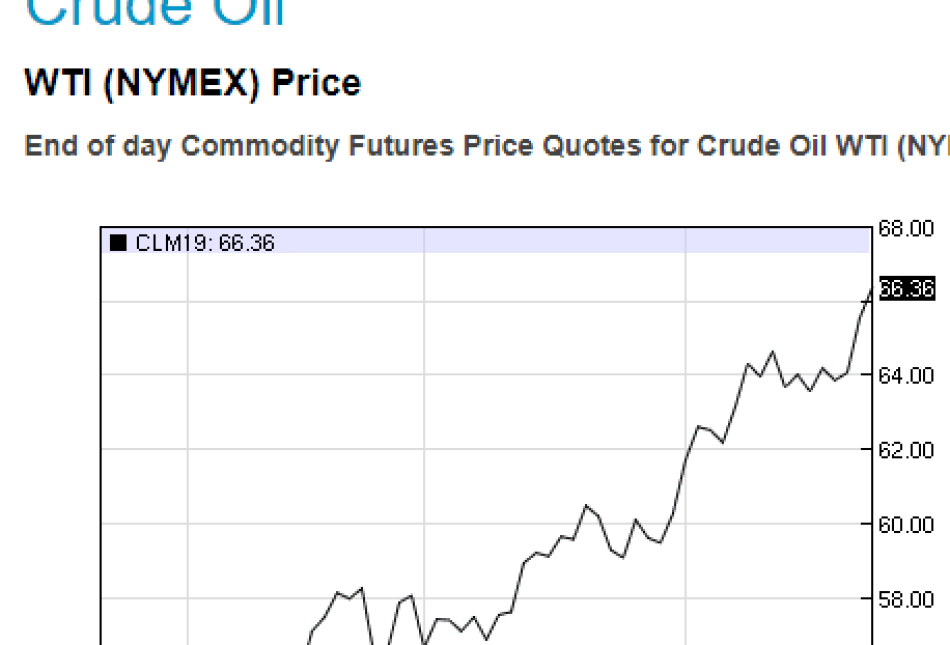What’s next for What’s next for New Mexico economy and politics?

The following appeared in the Farmington Daily-Times on April 19.

We at the Rio Grande Foundation have not been shy in our critiques of the 2019 legislative session. Economic freedom lost big during the session while higher taxes, more government regulations, and bigger government won.
In the long-run such moves will inevitably result in slower economic growth and reduced wealth for New Mexicans. Low economic freedom New Mexico has consistently lagged behind all of its neighbors in terms of population growth and economic prosperity.
Unfortunately, for someone who wishes that politicians and the public immediately saw the impacts of these policies, New Mexico has recently benefited from economic forces that are beyond the Legislature’s control.
As Bloomberg News noted in late 2018, “New Mexico’s economy leads other states in job and wage gains since President Donald Trump’s inauguration in January 2017.” For a variety of reasons, not the least of which is his pro-energy policies including faster permitting for oil and gas leases on federal lands, the Trump Administration has been especially good to New Mexico.
Pro-energy policies won’t do much if there is a glut. When it comes to natural gas, prices remain depressed due to oversupply, but in the oil markets New Mexico has benefitted from both booming production and relatively strong prices.
Oil production in New Mexico has tripled since 2012. That production contributed greatly to the $1 billion surplus that the Legislature was able to spend during 2019. And, while the price per barrel reached a high of $75 a barrel in October 2018 and then dropped to the low $40s by the end of 2018, prices have risen once again and now hover in the $60 range and are likely to rise through the summer.
If production and prices remain at these levels New Mexico government will remain flush with cash. Of course, the fruits of the oil boom will not be evenly distributed throughout New Mexico.
Because of the sheer scope of the Permian Basin’s oil production that region will remain in hyper-drive.
Unfortunately, the opposite is true in the Four Corners where natural gas production is declining due to the age of the basin and depressed prices. Worse, the shutdown of the San Juan Generating Station (and the mine which feeds it) which was ensured by the Legislature this session will result in the elimination of hundreds of jobs and large chunks of the region’s tax revenues over the next few years.
Adjusting to the new economic reality will be made even more difficult for the Four Corners and other parts of rural New Mexico as the minimum wage rate ratchets up from $7.50 an hour to $12.00 over the next few years. Outside of the Permian Basin, much of rural New Mexico is struggling. The minimum wage hike will only make it harder for unskilled workers to find work and for small businesses to stay afloat.
Moving forward it is clear that so-called “progressives” who dominate New Mexico’s major cities (Albuquerque, Las Cruces, and Santa Fe) and whose interests dominated the 2019 session, are out for more. The 30 day session will most certainly include another discussion of tapping the permanent fund for pre-K. Spending will also rise dramatically if oil and gas remain strong, but oil and gas will likely be targeted for additional regulations in ways they were not in 2019.
More profoundly, the next election will see well-funded “progressives” attempting to take out Republicans and moderate Democrats who they see as the only obstacle to total dominance. A handful of Republican senators remain in Albuquerque and Las Cruces. They will definitely be targeted electorally as will many rural Democrats in the Senate.
Booming Permian Basin oil production and stable prices mean New Mexico is fine for now, but a deep and sustained decline in oil prices could cause serious issues for our State. Combine that with the potential for “progressives” achieving total political dominance in 2020 and New Mexico is in unprecedented peril.
Paul Gessing is the President of New Mexico’s Rio Grande Foundation. The Rio Grande Foundation is an independent, non-partisan, tax-exempt research and educational organization dedicated to promoting prosperity for New Mexico based on principles of limited government, economic freedom and individual responsibility.
